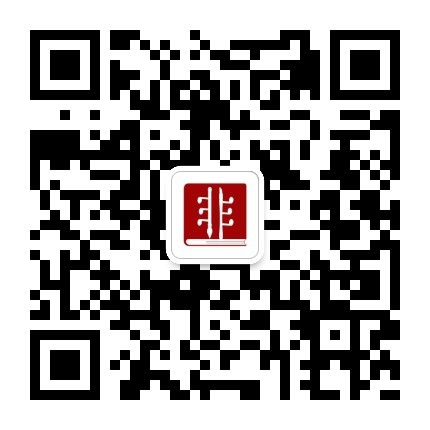【亚洲•韩国】济州Chilmeori堂灵登巫术非物质文化遗产项目
2018-02-05 10:40
济州岛因土地贫瘠,人们更多从事渔业。这样的地域特征给济州人们带来很多困难,随之对大海这一巨大的生活根据地产生了敬畏心理。朝鲜朝编的《东国舆地胜览》济州牧风俗条目中这样写道:“风俗崇尚阴事,不管山丛还是水池,高坡还是低丘,还是树石,全部都举行神的祭祀。”从记载中可以看出,济州是举行很多信仰行为的地方。对于主要靠大海来谋生的济州渔民来说,‘灵登巫法’具有着特别的意义。
七头堂是济州市健入洞的本乡堂。与本乡堂所在的七头村这一地名相结合,被称为七头堂。七头堂中供奉着灵登神和夫妇神,夫妇神是都元帅监察地方官 “男神”和龙王海神夫人“女神”。男神管理地域居民,女神则守护渔夫和海女。
一到灵登巫法的时节,济州岛各处都举行灵登巫法,祈愿大海风平浪静及渔业丰收。在诸多的灵登巫法中,健入洞七头堂举行的巫法是国家指定重要非物质文化遗产第71号‘济州七头堂灵登巫法’。虽然名为灵登巫法,但并不只祭灵登神,既是堂的主人、也是守护村庄的堂神、以及掌管大海的龙王。也就是说,灵登巫法具有供奉多神位的形式。灵登神、堂神、龙王等众多的神当中不重要的。但是其中灵登神与济州岛(三多岛)中‘3多’之一‘风’有着紧密联系,是威胁人类的可怕对象。风使大海泛起汹涌波涛,立即变成可怕的地方,人们由此无法获得食物,也会受到波涛对生命的威胁。
特别是在灵登神进出时期(2月初-中旬),大海变得十分暴戾。济州岛人认为灵登神在这一时期吞噬海产品,才使得大海变得暴戾。
2月14日举行的灵登巫法送别祭按照初监祭(告知天神,请神入堂上坐,并叫参加者的名字)、进本乡(请本乡神>夫妇神>,祈求村庄平安无事,三献官敬酒,家人们烧纸)、丑物演出(向所有神劝酒、玩糕的游戏)、接龙王(迎接龙王和燃灯神,祈求海上安全和丰收)、送种(用小米占卜后出海,撒海带种等的一种播种仪礼)、阻厄(为了防止村子遭到厄运,扔公鸡,对家里的运数和给海女占卜)、令监游戏(老头们将稻船放逐远海)、祷神(送神)的顺序来进行。
济州岛称接神后祭神的人为‘心房’。重要无形文化遗产第71号济州七头堂祭,以1980年安士仁心房被认定为传承者后闻名。济州岛开展‘新农村运动’时,祭被认为是一种迷信。但是济州岛渔民们为了克服对大海的恐惧,不得不祭神,于是与心房们一起在深谷中躲避监视,小心翼翼地献上虔诚的祭拜。由此才使难以传承和维持的祭典活动因七头堂灵登巫法被指定为非物质文化遗产,并留存下来。此后为了挽救这一祭典活动,以安士仁心房为中心开始聚集。这时一起开始的成员有现在济州七头堂祭的继承人金润洙、顾问梁窗宝、助教高逊安等济州七头堂灵登巫法包含灵登神的济州岛海女信仰和民俗信仰,是大韩民国唯一的海女巫法,从这一点来看,具有学术价值。
Because of poor land, people in the state island are more engaged in fishing. Such regional characteristics have brought many difficulties to the people of Jeju, and consequently a sense of awe has arisen for the vast living base of the sea. In the entries of the pastoral custom of Jeju, compiled by the Korean Dynasty, the Eastern Country, Public Places and Scenic Landscapes, it is written as follows: "Customs advocate evil things, whether mountains or pools, high slopes or low hills, or trees and stones, all hold sacrifices to gods." As can be seen from the records, Jeju is the place where many religious acts are held. For the fishermen in Jezhou who mainly depend on the sea for their livelihood,'Lingdeng Witchcraft'is of special significance.Qitoutang is the home of Jianjin Cave in Jizhou City. Combining with the place name of Qitou village where the town hall is located, it is called Qitoutang. In the seven-headed hall, the gods of Lingdeng and couples are worshipped. The gods of couples are the goddess of Marshal Dudu who supervises the local officials and the goddess of Dragon King and Lady Haishen. The goddess governs the inhabitants of the region, while the goddess guards the fishermen and seagirls.
At the time of Lingdeng witchcraft, Lingdeng witchcraft was held everywhere in Jeju Island, praying for calm sea and a good harvest of fisheries. Among many Lingdeng witchcraft laws, the "Lingdeng witchcraft law" of Qitoutang in Jianjin is the No. 71 "Jizhou Qitoutang witchcraft law" designated by the state as an important intangible cultural heritage. Although it is called Lingdeng Witchcraft, it is not only the owner of the temple, but also the God who guards the village and the Dragon King who runs the sea. That is to say, Lingdeng sorcery has the form of worship of polytheism. Among the many gods such as Lingdeng, Tangshen and Dragon King, it is not important. But Lingdengshen is closely related to the wind, one of the "more than three" in Jeju Island, which is a terrible threat to human beings. The wind caused the sea to surge and become a terrible place immediately. As a result, people could not get food and were threatened by the waves.
Especially in the period of Lingdeng's entry and exit (early-mid February), the sea became very violent. Jeju Islanders believed that Lingdeng God devoured seafood during this period, which made the sea violent.
On February 14, Lingdeng witchcraft farewell ceremony was held in accordance with the first prison sacrifice (informing the gods, inviting the gods to sit in the church and calling the names of the participants), entering the hometown (inviting the local gods > couple gods), praying for peace and security in the village, offering three official toasts, burning paper for family members), performing ugly things (persuading all gods to drink and play cakes games), and receiving the Dragon King (greeting the Dragon King and the Lighting God, praying for safety and abundance at sea). Receiving, sending seeds (a kind of sowing etiquette after divination with millet, spreading kelp seeds, etc.), resisting adversity (throwing cocks in order to prevent the village from being doomed, divining the sea maiden with the luck of the family), commanding game (the old men banished the rice boat to the sea), praying God (sending god) are carried out in sequence.
Jeju Island calls the person who sacrifices gods after receiving gods "atrium". The Seven Heads Hall of Jeju, No. 71, an important intangible cultural heritage, is famous for its Anderson atrium, which was recognized as a successor in 1980. When the "New Rural Movement" was launched in Jeju Island, sacrifice was regarded as a superstition. But in order to overcome their fear of the sea, the fishermen of Jeju Island had to sacrifice to the gods, so together with their hearts, they avoided surveillance in the deep valley and carefully offered devout worship. Thus, the sacrificial activities which are difficult to inherit and maintain were designated as intangible cultural heritage by the seven-headed hall Lingdeng witchcraft law and survived. Thereafter, in order to save the sacrificial activities, the centers of Anshiren's atrium began to gather. At that time, the members who started together included Jin Runshu, the heir of the Seven Heads Hall in Jeju, Liang Qiongbao, an advisor and Gao Sung-an, an assistant professor. The Lingdeng Witchcraft of the Seven Heads Hall in Jeju included the beliefs of Jeju Island seamaids and folk beliefs of Lingdeng God. It was the only law of sea witches in the Republic of Korea. From this point of view, it had

